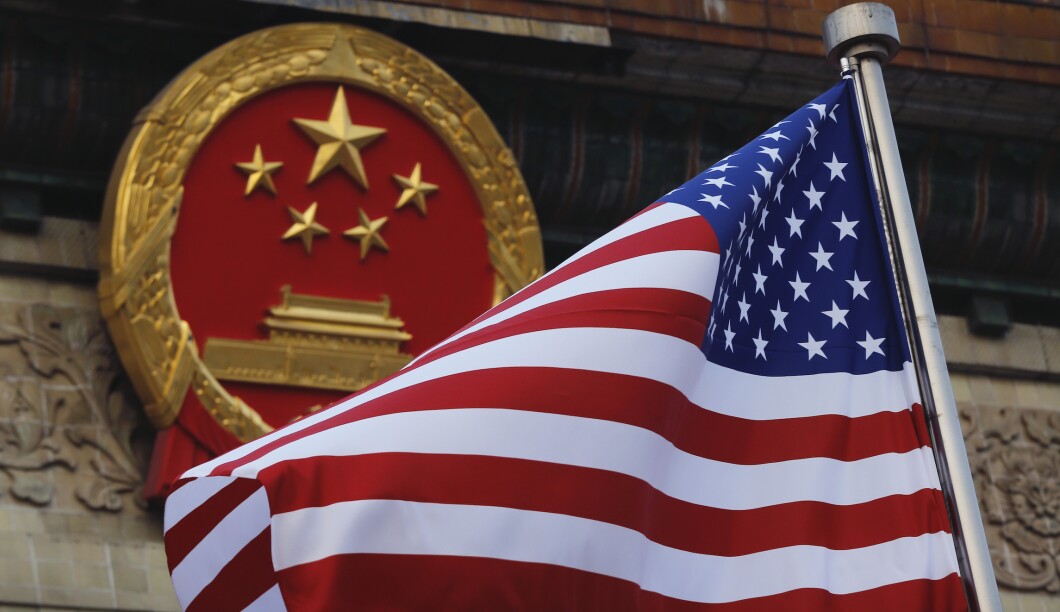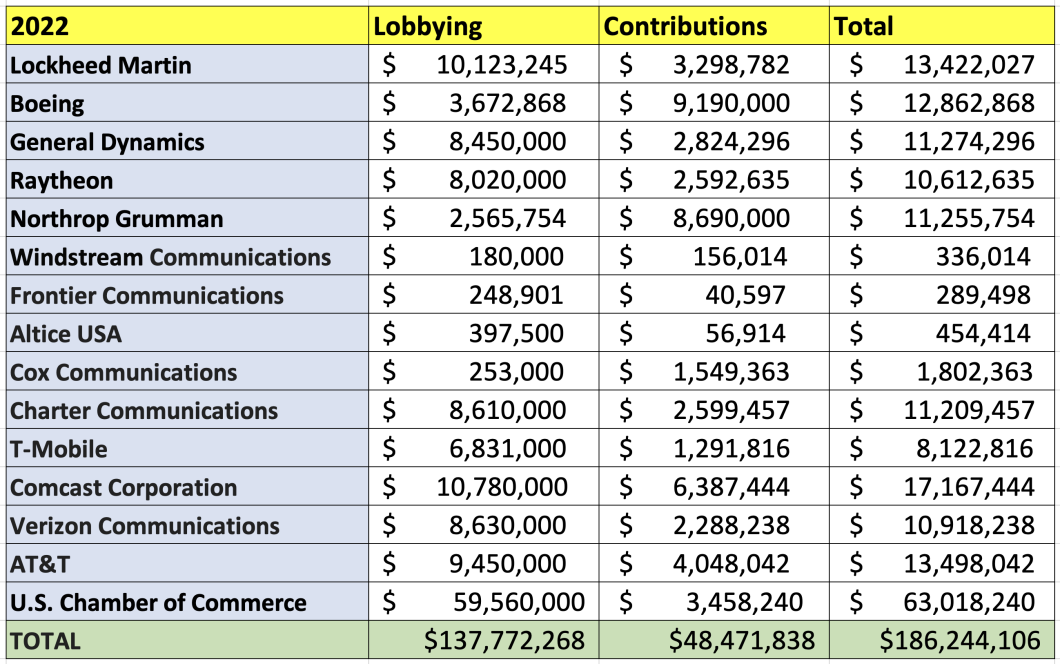
While the telecom and defense industries fight to keep buying Chinese-manufactured chips, a host of companies like Boeing, General Dynamics, Cox Communications, and AT&T have doled out more than $123 million in lobbying and contributions to Congress this year.
And the U.S. Chamber of Commerce, the leading voice seeking to water down a pending revision to the National Defense Authorization Act curtailing the use of chips, has spent $63 million. Republicans received 74% of these funds, OpenSecrets reported.
Congress is in the midst of crafting a deadline to curtail the use of the chips by federal agencies and their contractors.
The measure started with a two-year deadline to prohibit the use of Chinese-manufactured chips but was pushed back to five years with numerous carveouts after the Chamber authored a letter to the Committee on Armed Services. It stated that hardships would ensue.

“The good news is this legislation recognizes that we cannot have a shared high-tech industrial base with China, a country in military competition with us,” said retired Rear Adm. Mark Montgomery, a cyber expert at the Foundation for Defense of Democracies. “The less desirable part is the length of time given for companies to extricate themselves from the Chinese supply chain.”
Twenty-three senators and 102 House members took contributions from a group of the nation’s 14 largest corporations believed to utilize Chinese chips in their products as well as the Chamber. This includes 78 Republicans and 47 Democrats, according to an analysis of OpenSecrets data by the grassroots organization Chip in America.

The average contribution was $2,941 in the Senate and $2,062 in the House. But there are those who amassed a far bigger fortune, such as Senate Minority Leader Mitch McConnell (R-KY), who received $518,373 last year.
The list of contribution recipients is a who’s who on Capitol Hill, with some firebrand members notably absent, such as GOP Sens. Tom Cotton (AR) and Rand Paul (KY) and Republican Rep. Jim Jordan (OH).
XI’S STRATEGY IN THE US-CHINA CHIP WAR
“There is the money side to this also,” said Dustin Carmack, former chief of staff to the U.S. director of national intelligence. “You have to look at where these industries are located and where they have subcontractors. With all 435 districts in the country, they have some connection there.”
Carmack said the companies undoubtedly put pressure on Congress and held that removing Chinese chips will raise costs and put them out of business.
“I would rather spend the dollars and make sure supply chains are more secure than have subcomponents from China,” Carmack said.
But companies need to help protect American interests and not just look at their bottom line, said Wayne Gross, a former federal prosecutor who represents Chip in America, which is fighting to bring chip manufacturing back to the United States.
“American companies currently sourcing chips from questionable sources should do their part to stop the infiltration of our technology,” he said.
CLICK HERE TO READ MORE FROM THE WASHINGTON EXAMINER
Montgomery, however, wasn’t convinced that donations equal votes on the chip bill.
“They are getting money from telecom and defense companies for a lot of things but not necessarily tied to this issue,” he said. “I think in the end, [lawmakers] will do the right thing.”





